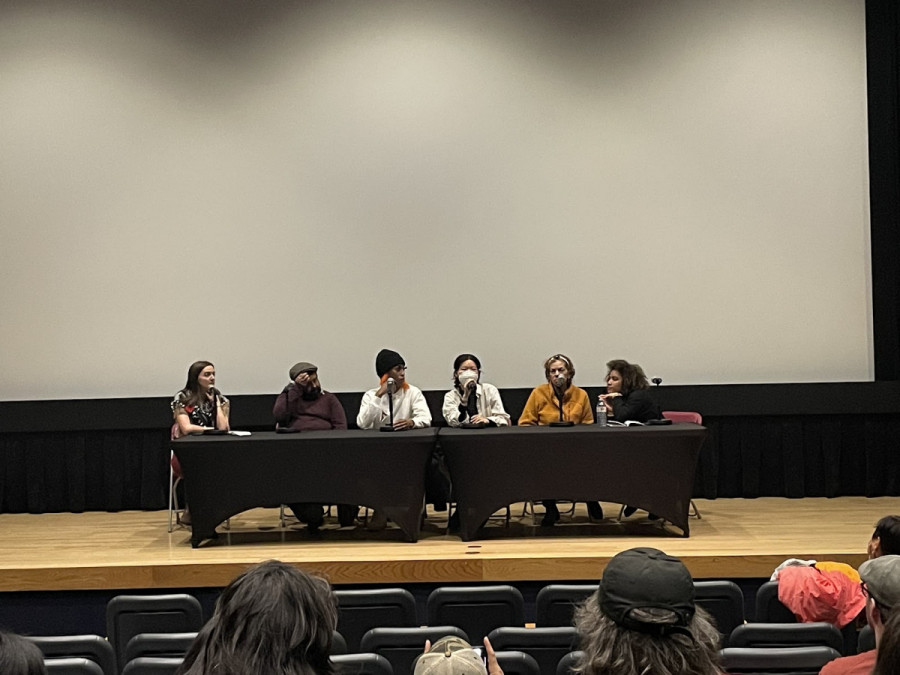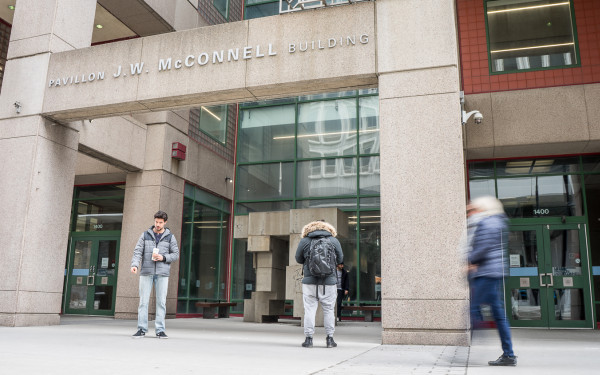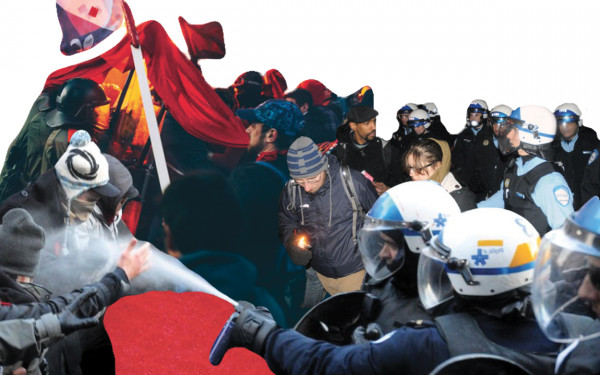“No More 24” speaker panel brings attention to migrant labour rights in Montreal and abroad
The CSU-hosted event educated students on abysmal working conditions for in-home care workers
On Saturday, Nov. 11, the Concordia Student Union (CSU) presented “No More 24”, the second of three events in a labour-focused speaker series taking place throughout the month.
The series, which is being organized by CSU external affairs and mobilization coordinator Hannah Jackson, deals with issues such as sex trafficking, migrant labour rights and prison abolition.
“No More 24,” highlighted the exploitation of in-home healthcare workers in New York City who face pressure from employers to work 24-hour shifts. It featured speakers from New-York-City-based campaign Ain’t I A Woman, as well as from Migrant Workers Alliance for Change and the Immigrant Workers Centre (IWC).
The conversation shifted between discussing the challenges of migrant workers in both Montreal and New York.
New York is currently the only state to legally allow 24-hour-long shifts for in-home healthcare workers — such as hospice nurses and in-home caregivers for the elderly, ill, or disabled. “‘24-hours’ means that we have to stay in [patients’] homes,” said Candy Song, an in-home care worker who has worked in the industry for over a decade. “Eating, drinking, using the restroom, sleeping [...] anything that they need to live. […] If they’re uncomfortable at all, we have to handle it.”
In Montreal, the situation for in-home care workers is also deteriorating. Jackson, who worked as an in-home caregiver when she first moved to Montreal, explained that though in-home care in Quebec is covered by the Régie de l'assurance maladie du Québec, patients often do not receive the level of care that they need. “I experienced wage theft and exploitation within the Canadian home care system,” said Jackson. “My patient only had 15 hours [of care] per week. The family needed far more, so the families often end up pushing the home care workers to work unpaid, or under the table […] because the state isn’t supporting them.”
Mostafa Henway, who was representing the IWC during the panel, pointed out that in-home care workers are not the only migrant workers to deal with something akin to a 24-hour workday, particularly in Montreal. “[The IWC has] a lot of members who are truck drivers. A lot of them are international students or asylum seekers […] If they’re doing long-haul, they’re working 24-hours, but they’re not allowed, technically, to drive past 16 or 17 hours in a day,” said Henway. “I recently had one worker who was fired because he got a coffee after 14 hours of driving. He took a five minute break, and his boss said no, because it’s GPS tracked.”
According to Song, in-home care workers in New York City are often required to stay in the home multiple days in a row, effectively keeping them on shift for 48-straight-hours. Since every aspect of the patient’s life is the care worker’s responsibility, getting rest becomes a challenge. “We’re supposed to sleep for five uninterrupted hours [during a shift], but there’s really no possibility of that happening,” said Song. “In reality, I have to get out of bed about once an hour. I have to check on my patient’s condition, whether or not they’re still in their room, even.”
Song pointed out that this is also an issue of disability rights. Because employers are overextending in-home care workers with 24-hour shifts, disabled patients who are in need of care are getting lower-quality help.
Additionally, care workers who are injured on the job or otherwise disabled cannot expect any help from their employers, and are often still expected to carry out multiple consecutive 24-hour shifts.
“After staying in patients’ homes, my blood pressure got very high,” said Song. “The doctor wrote a note for me saying I couldn’t do 24-hour shifts, but I couldn’t bring the note into work.” She told the Link that she signed a contract agreeing to take on 24-hour shifts when she began at the company, so she knew that if she brought the doctor’s note in, she would lose her job.
Although the panel dedicated most of its time to illustrating the state of migrant labour rights in New York and Montreal, it also touched on the deterioration of workers’ rights more generally and across international lines. “Our main worry is that [24-hour shifts] will spread,” said Jackson. “It’s happening for home care right now, but it could lead to the normalization of lowered work standards in health care, in domestic work, in nannying, and eventually lower the standard for everyone.”
Ain’t I A Woman collaborated with the CSU on an open letter directed at declaring 24-hour workdays illegal. Ain’t I A Woman has also brought forth a petition to the UN to declare 24-hour workdays a crime against humanity. They are holding a protest in New York City on Thursday, Nov. 16, while the IWC is holding a protest near the Lionel-Groulx metro for airline employee rights at 10 a.m. on Tuesday.







